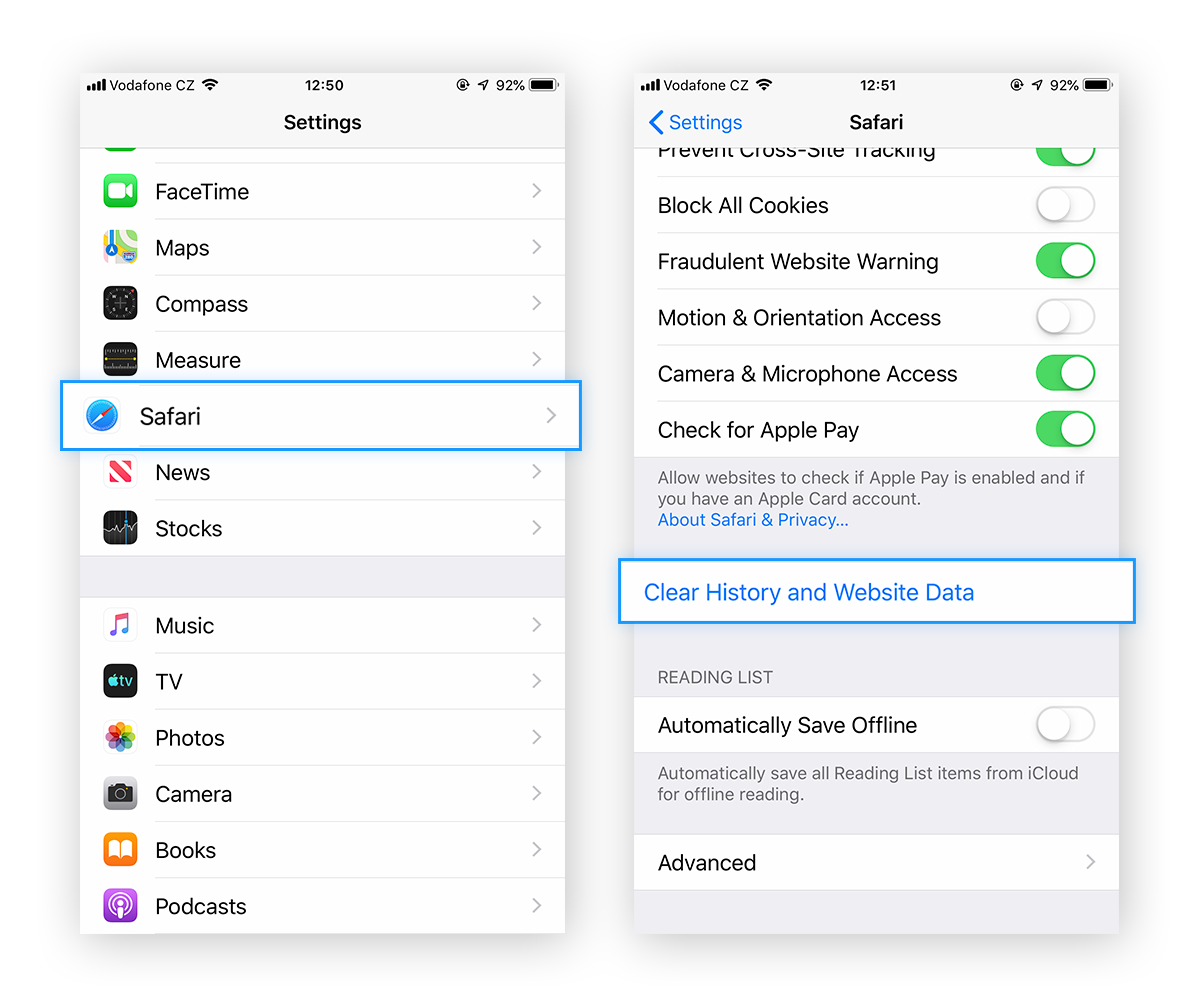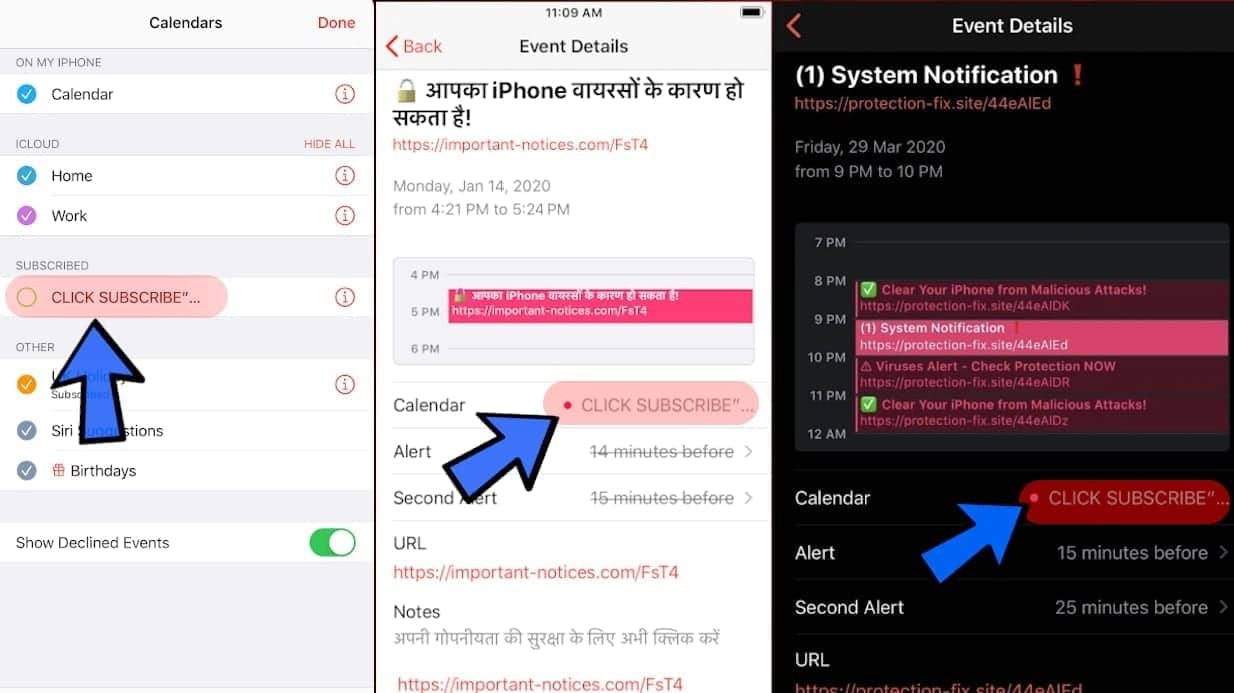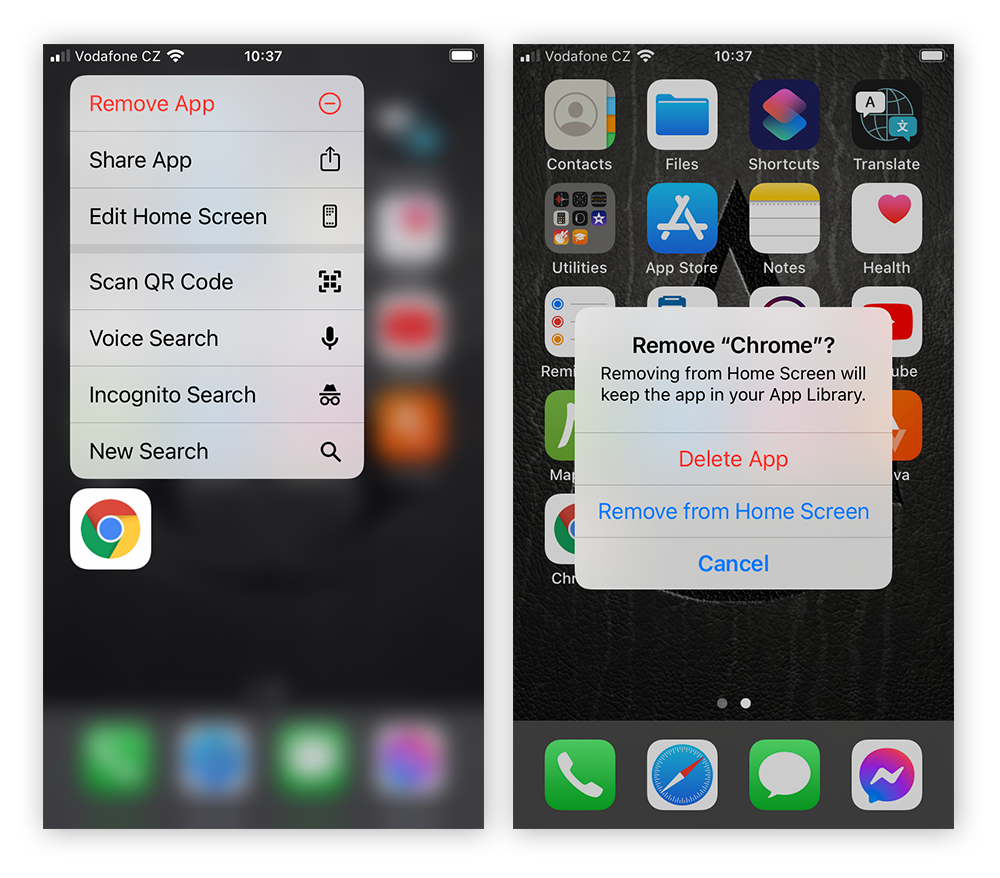Personalized Protection For Your Digital Life
Keeping your iPhone safe from malware is equal parts common sense, taking the proper precautions, and knowing what to do if you do get infected. For instance, did you get an email offer with a link that seems too good to be true? Then its most likely too good to be true, so dont click it!
This is where McAfee comes in. We can help you on all three fronts with McAfee Mobile Security, which works for both iOS and Android devices.
More and more people carry their lives and essential information on their smartphones. A data breach can be more than an embarrassment or inconvenience it can be a financial loss or loss of personal data.
With McAfees award-winning mobile security app, you get access to a reliable tool that can keep your online browsing safe, secure your Wi-Fi connection, and detect and block online threats, including malware.
McAfee provides the right protection so you can surf with confidence, not fear.
Stay Updated
How Can Your iPhone Get Viruses
Restore Your iPhone To A Previous Backup Version
Another way to get rid of an iPhone virus is to restore your iPhone or iPad to a previous backup state. If you restore to a backup made from before you noticed problems with your device, it should delete any malware thats infected your iPhone.
There are two basic ways to restore your iPhone: from a backup stored on your computer or from a backup saved on iCloud. To restore your iPhone to a version saved on your computer, go through iTunes. To restore your phone to a previous version using iCloud, first you need to see if this setting is turned on.
To check if iCloud backup is enabled, go to Settings > iCloud and see if the option for iCloud Backup is turned on. If this option isnt on, youll need to try another option above to get rid of the virus on your iPhone.
Heres how to use iClouds backup function to restore your iPhone to a previous backup version:
-
Go to the Settings menu and select General.
-
Scroll to the bottom and tap Transfer or Reset iPhone.
-
Select Erase All Content and Settings.
-
If you want to perform a last-minute backup to iCloud, select Backup Then Erase on the pop-up window Otherwise, select Erase Now. Follow the on-screen prompts and confirmations, and enter your password as needed to complete the procedure.
-
When your iPhone shows the Apps & Data screen, select Restore from iCloud Backup. Youll be prompted to sign into iCloud. Then, select which iCloud backup youd like to use.
Also Check: How To Unblock Short Code Sms iPhone
Clearing iPhone History And Browsing Information
Clearing your iPhones browsing data and history can help eliminate viruses. To delete cookies and cached data on your phone that could be connected to a malicious website, you should:
Clear Your Data Until Previous Backup & See If It Works

You can also try earlier backups to get your phone working normally back again. If you had done a backup before your phone got the malware, then you can get your phone back to normal, after restoring it to the Backup.
To restore your phone to a previous backup, follow these steps:
- Go to Settings on your phone, then tap the General option.
- Select the option of Erase All Content and Settings.
- Your iPhone will show you the Apps and Data screen. Click on Restore from iCloud Backup.
- Sign in to your iCloud account and then select the Backup that you think would solve the issue.
Don’t Miss: How To Block Unwanted Messages On iPhone
Digging Deeper To Find Whats Causing The Problem
The main questions when trying to work out what has happened to your malfunctioning iPhone or iPad are these:
Have you jailbroken your device?
If so, have you installed an application from a non-official source whose authenticity is questionable? If the answer to both is yes, you may have a malicious piece of software on your device and should attempt to isolate and uninstall the culprit.
Does the unexpected behaviour manifest itself when you use certain apps only?
If this is the case and particularly if its only one app then youre probably looking at an app-specific issue, and well deal with this in due course. As a rule of thumb, common behaviour exhibited by apps that have been hijacked include redirecting you to an unfamiliar web page in Safari, as well as opening the App Store without permission.
Does the unexpected behaviour manifest itself when you use any app?
If the problem continues to happen no matter which apps are open, the chances are that your device is misbehaving because of a hardware problem, an iOS change that youre not used to yet, or because you or another user of the device has changed a setting, perhaps inadvertently. Its extremely unlikely that malware has penetrated to the heart of the operating system and is causing problems throughout the system this would be essentially unprecedented. In any of these cases we would take the device to an Apple Genius Bar.
Back Up Your iPhone For Data Security
Just as important as updating to new versions of iOS is getting into the habit of regularly backing up your iPhone. If you’re wondering, “How do I back up my iPhone,” you can back up your device with iCloud, with your Mac or Windows computer, or both, and your photos, contacts, and other important data are preserved. An iCloud backup will be stored in the cloud, and a local computer backup will be saved on your computer having both is a double assurance that if your iPhone picks up malware, or is lost or stolen, you’ll still have access to all the information it contained. Also, you can use your backups to restore your phone if necessary we’ll get to that in a bit.
Recommended Reading: How To Stop Blocked Calls iPhone
What Is A Virus
Viruses are a type of malware designed to infect computer systems and use the resources of their host machine to self-replicate and spread to other devices. Viruses were one of the first computer threats to emerge, and despite the rapid growth of other forms of malware in recent years, hackers continue to develop new viruses to exploit vulnerabilities in computer systems.
Don’t Install Antivirus For iPhone
In conclusion, I want to give you a very simple advice that I still find useful: do not install iPhone antivirus ! Currently iOS does not need antivirus or antimalware and all applications that claim to be are simply “garbage.”
A different argument should be made for those applications, like Avira, which are produced by famous software houses specialized in computer security but are not antivirus for iPhone: they are anti-theft applications, applications to verify the security of Wi-Fi networks. etc.
Read Also: Where Is The Voice Recorder On My iPhone
Restore A Previous Backup To A Device
With the iCloud backup function, you can restore a previous backup state to an iPhone or iPad, so your device will function as it did before infection.
Heres how to restore your iOS device from a backup:
Remove Suspicious Apps From Your iPhone
Unfamiliar apps on your iPhone could be malicious, so removing these suspicious apps is a good way to get rid of an iPhone virus.
If you dont remember installing an app, or if you never use it, you should delete it. If someone puts an app on your phone without your knowledge, like a parental control app, it becomes spyware. And you should always remove spyware from your iPhone.
To remove suspicious apps, first scroll through your iPhone for apps you dont recognize. When you find a suspicious app, long-press the app icon, and tap Remove App to get rid of the malware from your iPhone.
You May Like: How To Edit Slow Motion Video On iPhone
Reset All iPhone Settings
Any changes or added settings on the iPhone will be deleted when you reset all settings. This will include saved WiFi passwords, VPN configurations, Bluetooth devices, the layout of your home screen, and any other settings. Data such as apps, contacts, photos and messages will be unaffected when you reset your iPhone settings.
To reset all settings, visit the Settings app and tap General. Tap Reset and then Reset All Settings.
Can Android Phones Get Viruses

No, Android phones cant get viruses. But Android devices are vulnerable to other types of malware that can cause even more chaos on your phone. From malicious adware to spying apps and even Android ransomware, Android threats are widespread.
One of the reasons Android phones are susceptible to malware is because Android struggles with updates. Updates are important because they often contain critical security fixes to bugs or other vulnerabilities found in the operating system .
Sourcing apps from third-party sources also increases the risk of accidentally installing malware. Androids open-source system and delayed rollout of updates are two major reasons why you should always use a strong antivirus solution for Android as an added layer of protection.
Read Also: How To Get iPhone Off Silent Mode
Dont Jailbreak Your Device
Jailbreaking your iPhone gives you more freedom over interface customization, but its just not worth risking the safety of your iOS device. When you jailbreak your iPhone or iPad, youre exposed to apps that arent vetted by Apple. This increases the risk of downloading malicious apps and lowers your ability to ward off cyberattacks.
How To Remove A Virus From An iPhone Or Android Phone
Whether theyre stealing your data, using your phone to mine cryptocurrencies, or siphoning money out of your bank account, smartphone viruses can be a nightmare. Luckily, you can discover and remove malware on both iOS and Android phones.
The word virus technically refers to a specific kind of malware that spreads through infected files. However, most people use virus to refer to malware in general, so well use the terms interchangeably here.
In this article, youll get a complete picture of how malware ends up on your phone, what it does, how to remove it, and how to avoid it in the future.
To start, lets look at how to find whether your phone is infected with malware.
Recommended Reading: How To Save Mp3 To iPhone
iPhone Malware: Avoid Suspicious Links Phishing & Robocalls
I think we’ve all had the experience by now: a questionable download in an email from a friend, a robocall that urges prompt action on a past-due account, an email from your insurance company requesting that you follow a link to update your account information. Any of these might be legitimate, or they might be scammers trying to get access to your iPhone or your personal data.
If you’ve received an email or message on social media with a link or download that seems different than your usual conversational style or content with the sender, text or call to make sure your friend is really the one who sent that message before downloading or opening anything. If your friend’s email or social media account has been hacked, it may be sending messages to their contacts without their knowledge in an attempt to spread the malware still further. Similarly, don’t call numbers left in your voicemail, or follow links emailed to you, even if they seem important or official. If your credit card company or bank is trying to contact you, call the number on the back of your card or visit the usual customer service website you’ve used in the past and report the call or email. If it’s a genuine message, you’ll be able to deal with the issue through customer service if it’s a fraudulent message, you’ve saved yourself a lot of trouble!
I Can iPhone Get Viruses From Apps Or Websites
You might be wondering how does this malware infect your iPhone. How to check if your iPhone get malware or viruses. There are two ways for viruses to enter the iPhone.
-
One of them is to lure the users to download and install the malware themselves using baits. The baits are usually in the form of fake warning that will pop-up when someone visits “bad websites” like free videos online. When users click on the warning, the malware is downloaded and installed.
- Some app developers may plant a virus on the application or using infected malicious code. There were cases in the past where apps built using bad source code pass the app approval program and go out into users devices. Apple had to remove them from the app store.
-
The malware will “hijack” your phone via a pop-up and have it redirected to open an app page in AppStore.
Also Check: How To Take Care Of iPhone Battery
Whats The Best Antivirus For Ios
I suggest you check out a mobile security app like Norton 360 to protect your iOS device from cyberthreats. While the threat of viruses is low, your iPhone or iPad is still vulnerable to online attacks from websites, SMS messages, attachments, and unsecured WiFi networks.
Norton 360 automatically secures you from public WiFi hotspots, blocks phishing links and dangerous sites, and even has a free VPN that encrypts your internet traffic from hackers. You have almost 2 months to test every feature before committing to a subscription as every subscription comes with a generous 60-day money-back guarantee.
Erase Your iPhone And Restore A Backup
The goal of erasing your iPhone is to get rid of the viruss code infecting your iPhone. Its always a good idea to backup any personal data on your iPhone to Cloud services like iCloud. To erase your iPhone and make it internally new, go to Settings, General and tap Transfer or Reset iPhone. Once youre there, select Erase All Content and Settings.
This is a useful feature if you plan on giving your phone away or selling it as well. This essentially removes all personal data. The phone can either be set up as a new device or restored from a backup. This is a key step be sure that you use an old backup. Using a recent backup may keep the virus on the phone, and the problems you tried to eliminate initially may still give you issues.
Following these steps should remove the virus from your iPhone successfully. If youre still running into issues, apps are still crashing or you see malicious activity on the device, it may be worth a trip to the Apple Genius Bar to get the problem taken care of.
Remember that no piece of technology is perfect getting a virus on your iPhone is not the end of the world, and the steps above will likely remove the virus. Now that the virus is removed lets discuss some things you can do to protect yourself from future iPhone virus threats.
You May Like: What iPhone Is After The 8
How Can I Tell If I Have A Virus On My iPhone
Keep an eye out for the following symptoms and take action in a timely manner:
- Your device runs much more slowly than usual
- You notice unknown or strange-looking apps installed on your phone
- Your default browser changes on its own, and you get a lot of pop-up ads
- Your phone keeps running out of memory or its memory usage is constantly increasing
- Your battery overheats or dies quicker than expected
If you notice any of these symptoms, it’s time to check your iPhone for malware and remove it.
How To Check If Your iPhone Has A Virus

Its very unlikely that your iPhone is infected with a virus. The App Store does an excellent job of vetting potential threats, which usually keeps iOS free from any nasty agents. If youre experiencing issues with performance or particular apps having hiccups, its always worth running any updates that are available, both for iOS and apps, to see if that rectifies the issue first. Should you still have your suspicions after that, you can follow some of the steps outlined below.
Bear in mind that the majority of successful virus and malware attacks on iPhones are usually those directed at models that have been jailbroken by their owners. If thats you, then breaking out of Apples walled garden could be the reason youve been exposed to infected software, as other app stores are known to suffer from viruses and malware-laden apps.
The good news in either case is that iOSs sandbox structure should prevent the malware attack from getting access to other applications or to the underlying operating system.
There was a recent problem with apps managing to get spam appointments on to the Calendar app, usually through tricking users to sign up to third-party calendars. If youve experienced this, then you can read how to remove iPhone calendar virus spam.
For a more detailed look at this topic, read do iPhones get viruses?
Also Check: How To Add Another Language To Keyboard iPhone